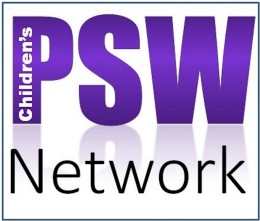
By Dr Peter Buzzi and Claudia Megele
Crises exacerbate inequalities and inequalities have a multiplier effect on the risks and negative outcomes associated with crisis and social stress. These mutually reinforcing forces create a vicious cycle that during the current pandemic is exposing the dehumanising effects of poverty and inequalities in societies. Therefore, the Principal Children and Families Social Worker (PCFSW) network has developed a guide for practice to stimulate ethical thinking.
The current “lockdown” and the need for social distancing and self-isolation have reduced the visibility of children, young people and vulnerable adults and removed many of the social support structures for children and families. Although schools remain open for the children of key workers as well as children with additional needs and those who have a social worker, only a limited number of children who are expected to attend school continue to do so.
This, combined with the reduced capacity and closure of many support structures and organisations, means that neglect, abuse and escalating needs and challenges may go undetected and children and families and vulnerable adults may not receive the support they need during the lockdown, which may last as long as six months (source: The Guardian). This may lead to a surge in the number of children on child protection plans and court cases and overwhelm these systems during and after the current pandemic, creating significant pressures and prolonging the impact of Covid-19 on people’s lives and services well beyond the current pandemic.
Ethical complexity
Home visits and contact with children and families are central to effective support, as well as risk assessment and safeguarding, and are part of social workers’ statutory responsibilities. However, due to risk of contagion there are complex ethical and practical questions and risks that need to be considered and assessed with balance and sensitivity.
For example, while the need for self-isolation offers a justification for perpetrators of abuse and those who do not wish to engage with services to refuse contact and home visits, many individuals or families are genuinely self-isolating or may be too anxious about contracting Covid-19 to allow practitioners into their home. Therefore, practitioners and local authorities have adopted digital technologies to carry out virtual home visits and creative approaches to see children and families.
To support practitioners, and drawing on the PCFSW national research on digital professionalism and online safeguarding, the PCFSW network will publish a best practice guide for home visits within the next few days, which will include guidance for both physical and virtual visits.
Covid-19’s impact on practice and workforce capacity poses major risks to continuity of services and support for children and families. Therefore, the the network has produced a best practice guide on assessments, which is aimed at supporting practitioners and local authorities in assessing and prioritising children and families’ needs and risks and ensuring that relationship-based practice remains the bedrock of social work and social care practice during these difficult times.
As the world battles to contain the biological impact of Covid-19, we should not lose sight of its social and psychological impact. Social isolation and increased familial tensions due to home confinement, combined with the trauma and loss of hundreds of lives every day, present an unprecedented mental health challenge that can have a lasting effect on children and families’ emotional health and wellbeing. This highlights the importance of continued support and direct work with children and families, and practitioners can creatively use digital technologies to do so. Therefore, the PCFSW research project is developing a guide and toolkit for direct work with children and young people online.
Isolating the victim is part of the coercive control strategy by perpetrators of abuse and for families experiencing domestic abuse. Lockdown may mean being “locked in” with the perpetrator while limiting the ability of services to help. Weeks, if not months, of isolation with the abuser, job loss and other sources of stress increase familial tensions and the gravity and frequency of domestic violence incidents. At the same time, the constant presence of the perpetrator can make it difficult for families to communicate with the outside world and for practitioners to contact children and families.
Use of social media with geolocation by children and families and the ability to contact the police can be particularly important during this time. Additionally, employers, service providers, such as electric and water companies, bank employees, supermarket staff and delivery companies, and neighbours should be attentive and sensitive to potential signs or messages from children and families; such messages may be the only chance for families to seek help from others. Given the complexity of this topic, we are developing a best practice guide and a toolkit for working with survivors of domestic abuse online.
Addressing children’s fears and anxieties
The constant stream of news about people who are ill or dying of Covid-19 can be traumatising for children. However, with so much uncertainty and anxiety about coronavirus among adults, children might not receive the necessary attentions and answers to their questions or adequate support for their worries. Therefore, it is essential that practitioners speak to children about coronavirus, acknowledging their fears, addressing their anxieties and answering their questions in a developmentally appropriate way. We have developed a short guide to offer helpful suggestions and support parents and practitioners to speak with children and young people about coronavirus.
Furthermore, staying at home with no opportunity to play outdoors or to meet their peers offline, children and young people are spending increasingly time on their digital devices and seeking friendship and validation online. Although this can be helpful – and to some extent is necessary – for children’s emotional and psychological wellbeing, it also exposes young people to increasing online risks, including online grooming and abuse and sexual and criminal exploitation (source: Reuters). This highlights the importance of online safeguarding more than ever before, and the urgency to ensure that practitioners have the skills and ability to assess online risks in an evidence-based manner and safeguard children and young people online. These and other online safeguarding challenges are the main focus of the ongoing PSW national research and practice development project, and as part of this research we are producing a guide on online safeguarding for practitioners which will be available shortly.
The PCFSW digital research and practice development project will also deliver a number of webinars for practitioners and to support parents and carers, including on:
- Digital and virtual home visits
- Learning from the views and experiences of young people online
- Assessing online risks and resilience
- Digital practice and digital professionalism
The PCFSW network is working closely with local authorities to finalise the remaining guides and hope you find these helpful.
 Dr. Peter Buzzi (@MHChat) is the director of Research and Management Consultancy Centre and the Safeguarding Research Centre. He is also the national lead for the PCFSW online safeguarding and practice development project.
Dr. Peter Buzzi (@MHChat) is the director of Research and Management Consultancy Centre and the Safeguarding Research Centre. He is also the national lead for the PCFSW online safeguarding and practice development project.
Claudia Megele (@ClaudiaMegele) is the national chair of the Principal Children and Families Social Worker (PCFSW) Network


 Bournemouth, Christchurch and Poole
Bournemouth, Christchurch and Poole  Hampshire County Council
Hampshire County Council  Lincolnshire County Council
Lincolnshire County Council  Norfolk County Council
Norfolk County Council  Northamptonshire Children’s Trust
Northamptonshire Children’s Trust  South Gloucestershire Council
South Gloucestershire Council  Wiltshire Council
Wiltshire Council  Wokingham Borough Council
Wokingham Borough Council  Children and young people with SEND are ‘valued and prioritised’ in Wiltshire, find inspectors
Children and young people with SEND are ‘valued and prioritised’ in Wiltshire, find inspectors  How specialist refugee teams benefit young people and social workers
How specialist refugee teams benefit young people and social workers  Podcast: returning to social work after becoming a first-time parent
Podcast: returning to social work after becoming a first-time parent  Podcast: would you work for an inadequate-rated service?
Podcast: would you work for an inadequate-rated service?  Family help: one local authority’s experience of the model
Family help: one local authority’s experience of the model  Workforce Insights – showcasing a selection of the sector’s top recruiters
Workforce Insights – showcasing a selection of the sector’s top recruiters 

 Facebook
Facebook X
X LinkedIn
LinkedIn Instagram
Instagram
Unfortunately ever family contact will have to be done online or by phone by Socials and Psychotherapists and all the other members of
CAHMS.
GP services and hospitals are in a similar position because of the Cov19.
There is absolutely nothing else we can do.
I work on the phone as a Psychotherapist.
It’s essential that local authority IT departments understand their role as facilitators in this process. My experience is that too many IT departments are actually hampering the use of online communication between social workers, therapists and children and families in need at the moment, telling us that only the system they use can be used. We are all using several different online communication systems at the moment (skype, microsoft teams, zoom, whatsapp to name but a few) and we need to find a way that these can all be incorporated into our work in a confidential way with the IT departments helping us along the way.
We received an email from our Director this week, stating that as practitioners we should use our judgement as to whether it is safe to undertake home visits, as well as exercise our judgement in regards to whether contact for LAC and their parents should go ahead. This highlights the lack of care and empathy they hold for us as practitioners.
Firstly, we are not medical professionals therefore are not in a position to assess whether it is safe to undertake home visits during this pandemic, if we are to do so, we could potentially expose or be exposed to COVID-19. This also applies to promoting contact between looked after children and their parents. As parents could also expose the child to COVID-19 or vice versa not withstanding the fact that government have clearly urged everyone to remain indoors to save lives and reduce casualties.
Sadly, this is another reason for the social worker to take the blame-damed if you do and damed if you don’t. The responsibility has been placed on the social worker, so should anything happened to the child or family it will be the social worker’s fault. However should anything happen to the social worker then all they get is a card and flowers sent home to their family. It’s appalling and we need more care, empathy and action from the government and directors of the local authority.
Please look after us, as you expect us to look after vulnerable families.
Anonymous
I understand this Monster C19 is really a concern of all us Social Workers. Unfortunately in countries like Uganda were not considered as an important ingredient that could move door to door to orient people on this pandemic and the out comes are going to be the concerns of our professional….
Social Worker indeed we must be at the centre of helping those who have lost their dear one’s not to despair in this trying moments.
Can a social worker come in to your home with covid 19 going on or do they have to stay at least 6.7 feet away from u
Has the network published their guidelines yet